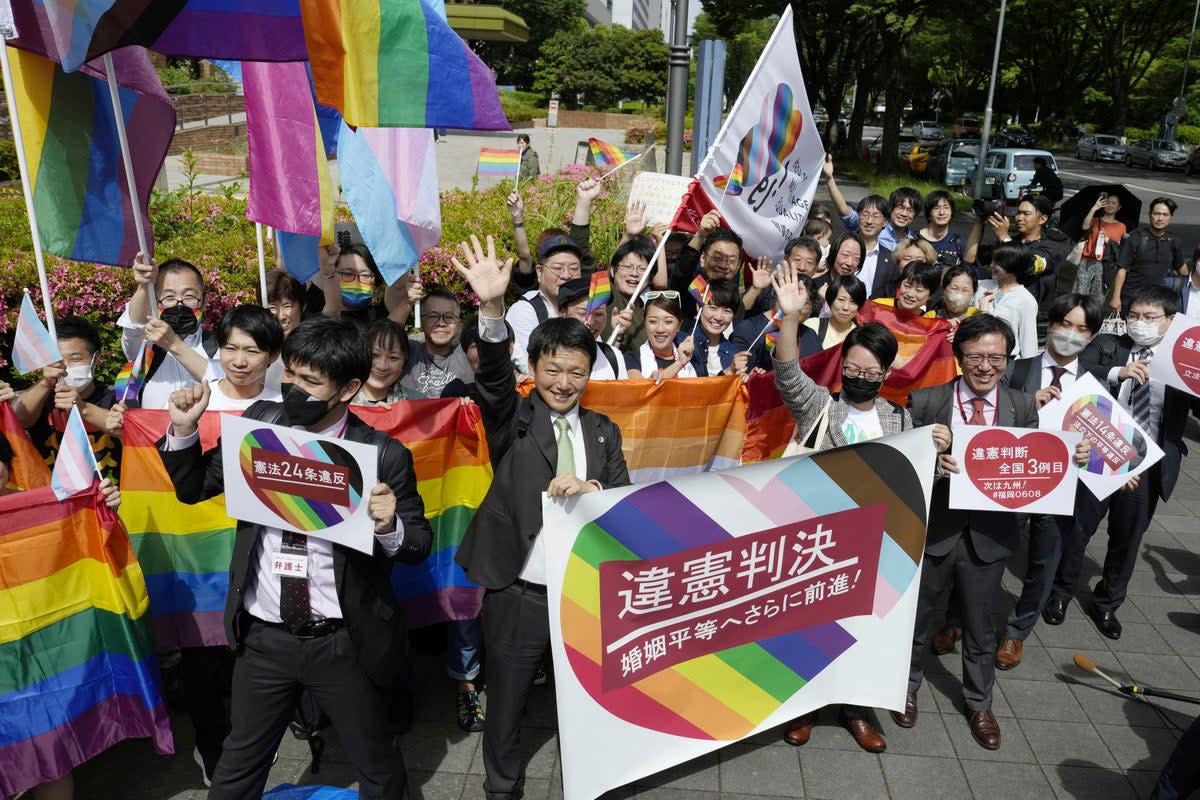‘Major step’ for equality as Japan court rules against same-sex marriage ban

- Oops!Something went wrong.Please try again later.
A court has ruled that Japan’s policy against same-sex marriage is unconstitutional – a decision welcomed as a step towards marriage equality in the only G7 nation with no legal protection for same-sex unions.
Nagoya District Court’s decision was the second against same-sex marriage out of four cases over the past two years, and is likely to add to pressure to change the law in a country in which the constitution says marriage is between a man and a woman.
Tuesday's ruling was greeted with cheers from the activists and supporters waving rainbow flags outside the court.
Asato Yamada, a lawyer for the plaintiffs, said the court's ruling said clearly that not allowing same-sex marriage violates the guarantee of equal rights under Article 14 of the constitution. “It's a major step toward achieving marriage equality,” he said.
Opinion polls show some 70% of the public supports same-sex marriage, but it is opposed by the the conservative ruling Liberal Democratic Party of prime minister Fumio Kishida.
More than 300 Japanese municipalities, covering some 65% of the population, allow same-sex couples to enter partnership agreements but these are limited in scope; partners can't inherit each other's assets or have parental rights to each other's children. Hospital visits are not guaranteed.
Chief cabinet secretary Hirokazu Matsuno told a press conference that the government did not believe the civil code and marriage laws were unconstitutional.
“With regard to issues surrounding the introduction of same-sex marriage, we believe it is important to pay close attention to the opinions of all parts of the public,” he said.
While Japan is considered relatively liberal, the LGBT+ community has been largely invisible because of conservative attitudes. Taiwan became the first place in Asia to legalise same-sex marriages in 2019. A new law would have to be passed in Japan before same-sex marriages could actually take place.
The government pledged to pass a law promoting “understanding” of LGBT+ people before hosting the G7 summit earlier this month, but opposition from conservatives delayed it so much that a watered-down version was only submitted to parliament the day before the summit.
Japan has come under increasing pressure to change, both from other G7 members but also from economic lobbies, with businesses arguing that greater diversity is needed for international competitiveness.
LGBT+ activists and their supporters have increased their efforts to achieve an anti-discrimination law since a former Kishida aide said in February that he wouldn't want to live next to LGBT+ people and that citizens would flee Japan if same-sex marriage were allowed.
Reuters and Associated Press contributed to this report

